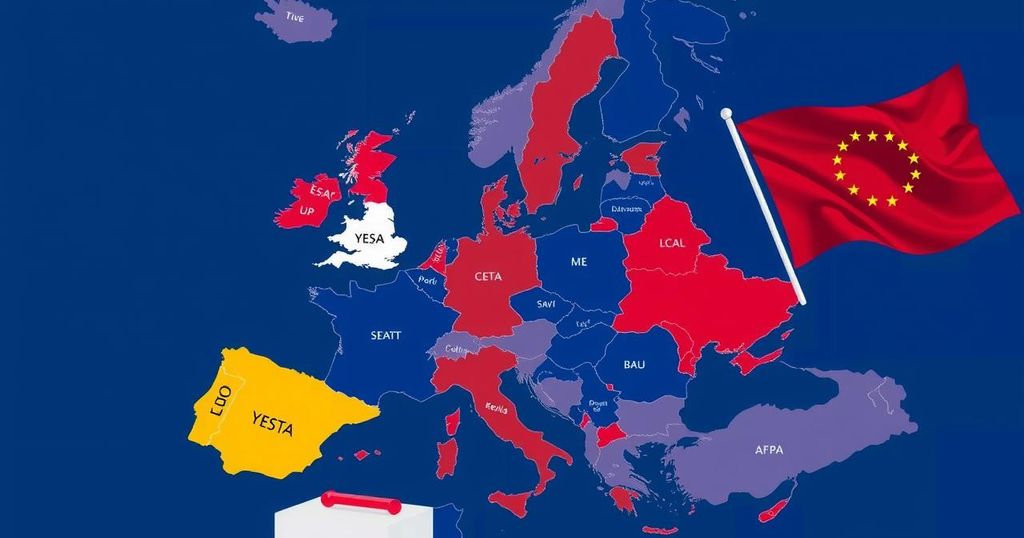Challenges for Europe Amidst Uncertain U.S. Electoral Outcomes

European allies of the United States are poised to face uncertain times due to the upcoming presidential election. Regardless of the outcome, concerns rise over diminished American support for NATO and Ukraine, primarily influenced by the possibility of a return to isolationism under a Trump presidency or the challenges of evolving U.S. priorities under Biden. Europe may need to recalibrate its defense strategies amidst these developments, signaling a shift in transatlantic dynamics.
As the United States prepares for its presidential election, European allies confront a complex geopolitical landscape regardless of the victor. The ongoing war in Ukraine profoundly influences transatlantic relations and defense commitments. Current President Joe Biden has emphasized sustained support for Ukraine, yet uncertainties loom regarding a potential return of former President Donald Trump, whose past statements undermine confidence in U.S. commitment to NATO and European security. Under Biden, European nations have enjoyed a degree of predictability in U.S. foreign policy, particularly concerning military support amid rising threats from Russia. However, Biden’s broader strategic pivot towards Asia raises concerns about Europe’s diminishing centrality in U.S. priorities. On the other hand, should Trump reclaim the presidency, analysts predict a drastic shift in policy, possibly reducing support for Ukraine and threatening existing alliances through protectionist measures. European officials now grapple with the reality that American attention may shift towards the Indo-Pacific region, leading to increased pressure for European nations to bolster their own defense capabilities. Analysts highlight a growing anxiety about the instability wrought by a Trump administration, as it could signify a retreat from traditional support structures established over decades. Furthermore, both candidates face domestic challenges, including war fatigue among the American populace and differing opinions on the future of Ukraine. Europe’s reliance on U.S. military support underscores a precarious balance, one which may not sustain under a drastically modified U.S. foreign policy landscape.
The backdrop of this discussion revolves around the significant geopolitical turmoil initiated by Russia’s invasion of Ukraine, leading to profound implications for NATO, U.S. foreign policy, and European security. Over the past few years, European nations have aligned closely with U.S. policies under President Biden, focusing on joint defense strategies and aid to Ukraine. However, there is an emerging concern that shifting U.S. priorities, particularly towards Asia, could exacerbate existing tensions and uncertainties for Europe. This shift raises questions about the long-term commitments of the U.S. to its European allies, especially amidst changing political dynamics in the U.S. related to the forthcoming presidential election.
In conclusion, regardless of whether Vice President Kamala Harris or former President Donald Trump emerges victorious in the upcoming election, European allies must brace for significant challenges ahead. With shifting U.S. priorities and potential decreases in American involvement in European affairs, European nations will be compelled to take greater responsibility for their security. The stakes remain high, particularly as the conflict in Ukraine continues to evolve. The reactions and accommodations that will follow the election outcome are likely to shape the future of transatlantic relations and global stability.
Original Source: apnews.com








